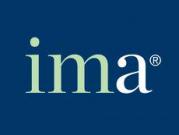IMA Ready to Compete with AICPA/CIMA Management Accounting Designation

The Institute of Management Accountants (IMA), which has offered the Certified Management Accountant (CMA) credential since 1972 and represents more than 60,000 accountants and financial professionals in business worldwide, is facing "fierce competition" fr om a new management accounting designation – Chartered Global Management Accountant (CGMA) – that will be launched by the American Institute of Certified Public Accountants (AICPA) and the Chartered Institute of Management Accountants (CIMA) in January 2012, according to Jeffrey Thomson, IMA President and Chief Executive Officer.
AICPA voting members will be automatically eligible for the credential upon verifying three years of qualifying experience. CPAs who are members of both the AICPA and their state CPA society will receive a special discounted annual fee to maintain the CGMA credential.
"While IMA welcomes these organizations' recognition of the important role of management accounting, we have some serious questions about the designation, and we intend to stand up and be counted," Thomson told AccountingWeb in a recent interview.
Thomson has questioned the length of the grandfathering period and the fact that AICPA members qualify without passing a test. He also objected to the automatic enrollment. "It is our understanding that they must opt out of the designation initially."
"Management accountants need to be able to make more judgmental analyses," Thomson said. "They need to pursue their credential and pass a rigorous, focused, relevant exam." He pointed out that in addition to passing a two-part exam, CMA candidates must fulfill both an education and experience requirement.
"At IMA, we are not just in the business of increasing our membership, although we are expanding our presence worldwide. We will continue to be focused on our mission, which is to respond to the market and to the needs of organizations and society."
"The market and organizations have shown a need for accounting professionals working in business to be prepared to analyze, plan, and budget, and to understand their obligation to investors and their role in preventing fraud. Studies have shown a talent management gap in forward-looking activities among finance professionals. We have an obligation to fill that gap."
"We expect finance and accounting personnel will choose to follow a professional management accounting path based on what the market and organizations have said that they need," Thomson said. "Surveys and focus groups have found that financial planners and individuals with knowledge of risk management, performance management, and measurement top the list of people they are looking to hire."
"Statistics show that a high percentage of students who graduate with accounting degrees will go into public accounting and perform audits, but after a few years they move into finance departments of companies of all sizes wh ere they are responsible for planning and budgeting. They have learned to analyze historic information, but many will have had only one course in management accounting as part of their undergraduate degree in accounting. Working in public accounting is a great way to start one's career, but an accountant in business still needs to acquire management accounting skill sets," Thomson said.
"Working from a strong technical basis, the accountant working in finance needs to be able to go from data to decisions, from information to insights, and sit across the table as a trusted business advisor."
"To have a great career, a young professional with an accounting degree needs to develop a well-rounded set of skills, but those skills have value at any stage in a career. I became a management accountant just two years ago after working in telecommunications for over twenty years, ending in a CFO role at AT&T. When I completed the 150 hours of required study for the CMA and passed both parts of the exam, I felt more competent, more rounded."
"An aspiring CMA needs to possess the skills to perform:
- financial planning analysis,
- strategic planning,
- risk management,
- mergers and acquisitions,
- strategic costing, and
- performance management and measurement."
Looking ahead, Thomson concluded that "the market will determine the future of management accountant credentials. But the market is not as rational as we would like, and it is very forgiving. When an organization has credibility and has reached a critical mass, people do not ask the tough questions, often building in inefficiencies."
Start free ReadyRatios
financial analysis now!
start online
No registration required!
But once registered, additional features are available.